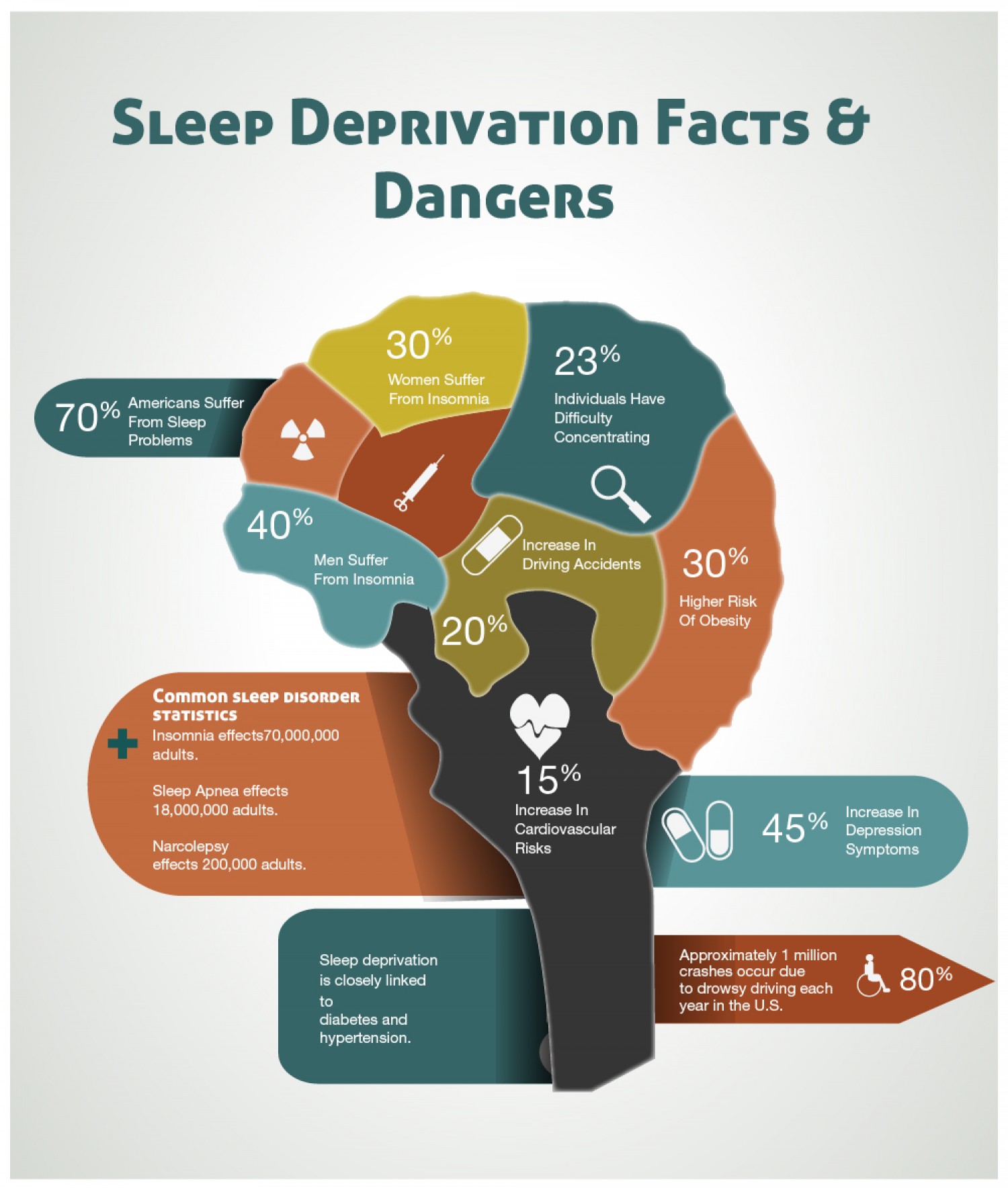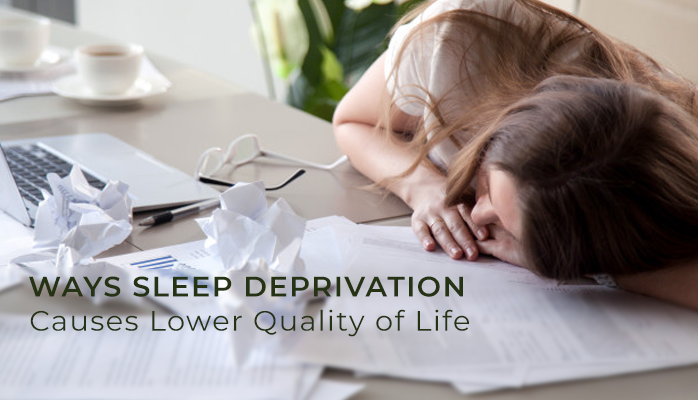Living with chronic sleep deprivation will make it harder to live a quality life. When someone is exhausted, it is very difficult to function well. Many conditions cause chronic sleep deprivation, such as:
- Sleep apnea
- Insomnia
- Parasomnias
- Restless leg syndrome
- Circadian rhythm disorders
Chronic sleep deprivation is defined by most studies as getting six or less hours of sleep on a regular basis. Let’s look at the critical ways chronic sleep deprivation impacts the quality of your life and, in turn, how getting good sleep can positively impact your life.
Mental Performance and Sleep
Mental performance is one of the most noticeable facets of life that is affected by sleep deprivation. One study looked at participants who went 17-19 hours without sleep. Those participants took a cognitive test and were equivalent or worse than those with 0.05% alcohol level and showed 50% slower response speeds on tests.
At more than 19 hours without sleep, performance levels quickly fell to those with 0.1% alcohol and higher, which is about the same as being drunk. Chronic sleep deprivation can quickly lead to such levels of cognitive performance [Source: Moderate sleep deprivation produces impairments…].
On the other hand, good sleep improves problem solving skills and memory performance in both children and adults.
Productivity and Sleep
Sleep significantly improves productivity in the following ways:
- Recover from distractions and interruptions faster
- Prevent burnout (sleep deprivation is one of the best predictors of burnout)
- You will make better decisions (see “mental performance and sleep”)
- You will have better memory
- You will make fewer mistakes, as sleep deprivation causes slower response times and lower accuracy rates on simple tasks
Both work and life will improve with sufficient sleep as the ability to perform well is related to the level of fatigue and sleeplessness.
Physical/Athletic Performance and Sleep
A great example of how sleep can affect physical and athletic performance is found in the following study of The effects of sleep extension on the athletic performance of collegiate basketball players [link to article].
In the study, college basketball plays followed their regular sleep schedule for 2-4 weeks to establish baseline performance. They then followed a 5-7 week sleep extension period that involved a minimum goal of 10 hours in bed each night.
In nearly all categories basketball players averaged a 10% improvement in performance. This study demonstrated how athletic performance can be positively impacted by adequate rest and sleep. Sleep deprivation, on the other hand, negatively affects physical activities in terms of:
- Endurance
- Energy
- Focus
- Reaction time
- Recovery periods
Physical Health and Sleep

Chronic sleep deprivation is not only poor for physical performance, it’s bad for health:
- Strong link of sleep deprivation to weight gain
- Sleep deprivation linked to heart disease and stroke [source]
- Sleep deprivation affects glucose metabolism and Type 2 diabetes risk [source]
- Link to increased inflammation [source] – those of you with IBS or other bowel-disorders may have already noticed a relationship between your gut and your sleep
- Sleep improves your immune function - in one study, people who received less than 7 hours of sleep were three times more likely to develop a cold than those with 8 hours or more of sleep.
In summary, chronic sleep deprivation increases the risk of weight gain, disease, and sickness.
Emotional Health and Sleep
Lack of sleep also can considerably affect mental/emotional health, such as depression. A majority of individuals, 90%, with depression report problems sleeping [source]. And while this may be a “chicken or the egg” scenario, there is evidence of a clear link between sleep problems and depression. For example, those who suffer from insomnia or obstructive sleep apnea report significantly higher rates of depression [source].
Also, motivation and social interactions are negatively impacted by lack of sleep – both of which are integral to one's sense of satisfaction and well being.
Conclusion
These studies show that sleep plays an integral role in all of the areas of life. If you live in Alaska and find that you are suffering from chronic sleep deprivation, please reach out to us by taking this free online sleep test and getting in contact with one of our sleep health professionals.


